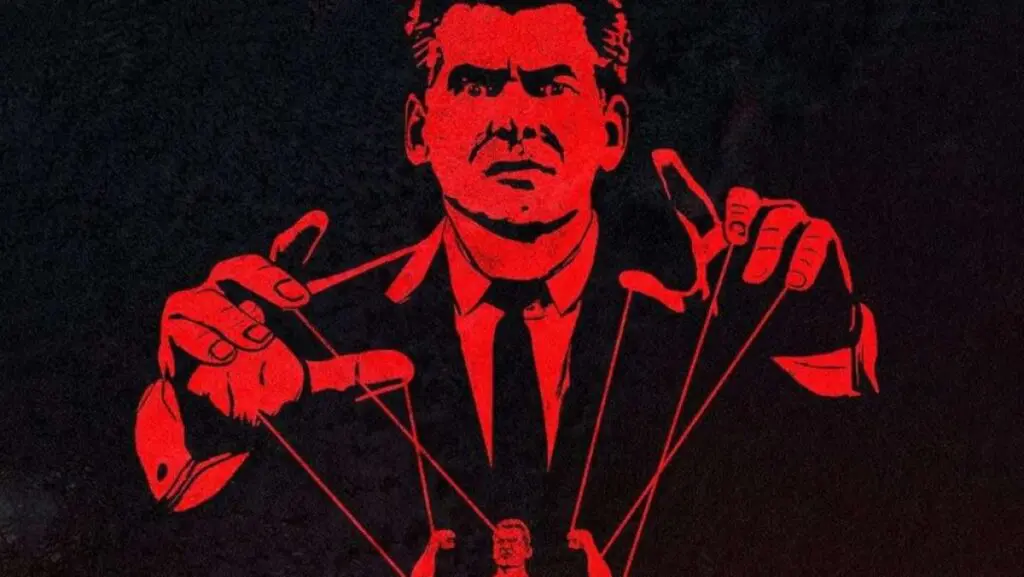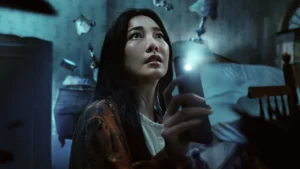Summary
Mr. McMahon is a damning exposé and a remarkable feat of filmmaking and editing, reimagining an intimate exploration of pro-wrestling’s past as something close to a eulogy.
Two days before the release of Netflix’s six-part docuseries Mr. McMahon, Vince McMahon himself took to social media to slam it. After five minutes of the first episode, it’s obvious what he’s upset about. Director Chris Smith (Tiger King) cashed in his money in the bank briefcase. If anything, Vince should be proud of the coup.
It’s a timing thing, which Vince should also appreciate. Production on Mr. McMahon began in 2021, with Smith filming over 100 hours of interviews with McMahon himself, his family, high-profile on-screen talents from the WWE’s various eras, as well as multiple insiders, journalists, and media figures. But before the final interview could be filmed, McMahon, who was no stranger to controversy at the best of times, was hit with a number of heinous sexual abuse and trafficking allegations.
Production was halted, and Smith presumably had a choice. He could have opted to can the project wholesale. Or, he could have created the docuseries he initially intended to and inserted an exonerating footnote at the end, reminding audiences that almost all of it had been filmed before McMahon was forced to step down as WWE’s figurehead. He did neither.
Instead, through keen filmmaking instincts and miraculous editing, Mr. McMahon uses the hours of footage signed off by the WWE under presumably very different conditions to draw eerie parallels between the growth of pro-wrestling as a worldwide, mainstream entertainment entity, and the gradual unveiling of a more monstrous underside to McMahon. The image of him as a malevolent maker-God who molded a titanic industry in his own image becomes, through his own testimony, and through that of those close to him who would never have agreed to participate if they knew how their incriminating statements would eventually be used, a villain origin story of which McMahon himself would have been proud.
It’s a remarkable feat, even if everyone already knew what McMahon was up to. Hearing from WWE’s current Chief Content Officer and Head of Creative, Paul Levesque, better known as Triple H and McMahon’s son-in-law, gives the public-facing kayfabe version of Vince a more sinister contour. At one point early in the first episode, Vince smilingly quips, “I wish I could tell you the real stories.” That’s one statement of very many that Vince will live to regret.
And Vince is, it’s worth reiterating, still alive, though admittedly in a state of inescapable disgrace. Mr. McMahon feels like a eulogy, though, not just for the man himself but for the culture of pro wrestling that enabled him. It’s savvy business from Netflix and a tactical wiping of the slate for when the “new” WWE, under Triple H’s creative control but different ownership, begins streaming on the platform. The world’s biggest home entertainment platform usurping Vince in quite this way feels like the industry’s cutthroat business dealings and arch moral storytelling in its purest form. Vince is described at one point as pro-wrestling’s P.T. Barnum. This is the circus collapsing on the ringmaster.
The underlying thesis of this docuseries is, I think, that the outlandish pageantry of wrestling allowed McMahon to masquerade as a character, a fiction, when in reality he was simply allowing his real personality to run rampant under the guise of entertainment. Lots of pro-wrestling’s Hall of Famers did the same. The WWE, American culture’s streaky mirror, has thrived on the idea that these characters – the heroes, the villains, and the sneaky businessmen, in particular – are contorted reflections of who we really are.
I’d like to think we’re better than this, than Vince’s warped idea of Americana could only exist because for the better part of his life he enjoyed a power beyond measure, the kind that most of us will never get near. But I can’t help but enjoy the poetic justice of Mr. McMahon, a damning exposé of a true villain that is somehow more destructively intimate than he could have ever imagined. In the end, McMahon was beaten at his own game.




